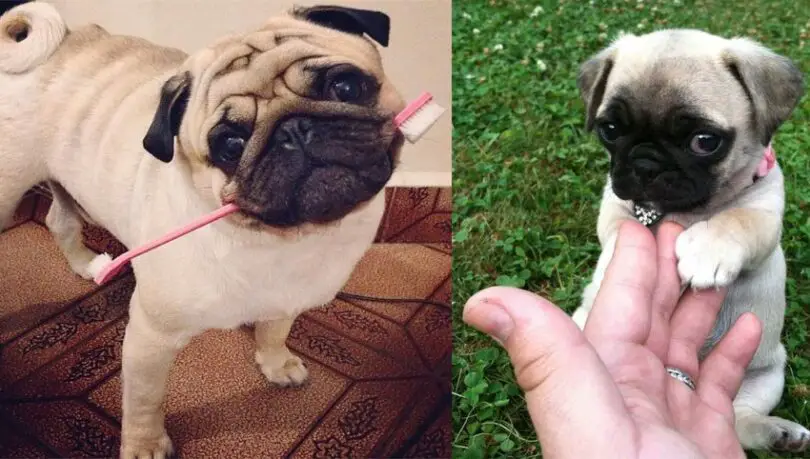As your pug enters the golden years, their care needs may evolve. Here’s a guide to navigate the senior years with your furry companion:
1. Regular Veterinary Check-ups:
Senior pugs benefit from more frequent veterinary check-ups. Schedule regular visits to monitor their overall health, address any age-related concerns, and adjust their care plan as needed.
2. Balanced Nutrition:
Adjust your senior pug’s diet to meet their changing nutritional needs. Choose a senior dog food that addresses their specific requirements, including joint health and weight management. Consult your vet for personalized dietary recommendations.
3. Weight Management:
Senior pugs are prone to weight gain, which can exacerbate age-related conditions. Monitor their weight and adjust their diet and exercise routine to maintain a healthy weight.
4. Joint Care:
Arthritis and joint issues are common in senior pugs. Provide joint supplements as recommended by your vet and engage in low-impact exercises like short, gentle walks to keep their joints mobile.
5. Dental Care:
Dental health is crucial for senior pugs. Continue regular dental care, including brushing their teeth and providing dental treats. Professional dental cleanings may be needed more frequently.
6. Comfortable Sleeping Area:
Provide a comfortable and supportive bed for your senior pug. Older dogs may develop arthritis or other orthopedic issues, so a soft and supportive bed can alleviate discomfort.
7. Gentle Exercise:
While exercise is important, tailor it to your pug’s abilities. Short, leisurely walks and gentle play sessions help maintain their physical and mental well-being without causing strain.
8. Regular Grooming:
Older pugs may require more attention to grooming. Keep their coat clean and free from matting, and pay extra attention to their ears, eyes, and wrinkles to prevent infections.
9. Cognitive Stimulation:
Provide mental stimulation to keep your senior pug’s mind sharp. Interactive toys, puzzle feeders, and short training sessions can engage their cognitive abilities.
10. Senior-Friendly Environments:
Modify your home to be senior-friendly. Consider ramps or steps to help them access elevated surfaces, and ensure that their living space is free from potential hazards.
11. Regular Social Interaction:
Senior pugs still benefit from social interaction. Arrange playdates with other calm and friendly dogs, and spend quality time bonding with your pug to provide emotional support.
12. Routine Vet Bloodwork:
Consider routine bloodwork to monitor your senior pug's internal health. This can help detect early signs of conditions such as kidney disease, diabetes, or thyroid issues.
13. Cushioned Collars and Harnesses:
Opt for comfortable and cushioned collars or harnesses to avoid putting extra pressure on your pug's neck or throat. This is especially important for senior dogs with potential neck issues.
14. Adapt to Changing Abilities:
Be mindful of any changes in your pug's abilities. If they show signs of discomfort or have difficulty with certain activities, adapt their routine and environment accordingly.
15. End-of-Life Planning:
While it may be a difficult topic, consider end-of-life planning. Discuss with your vet about signs of pain or decline, and ensure you have a plan in place for compassionate end-of-life care if needed.
Conclusion:
Navigating the senior years with your pug involves attentive care, adaptability, and a commitment to their well-being. By addressing their changing needs and providing love and support, you can ensure that your senior pug enjoys a comfortable and fulfilling life in their golden years.


Leave a Comment